A test of faith: Virtual worship in a COVID world
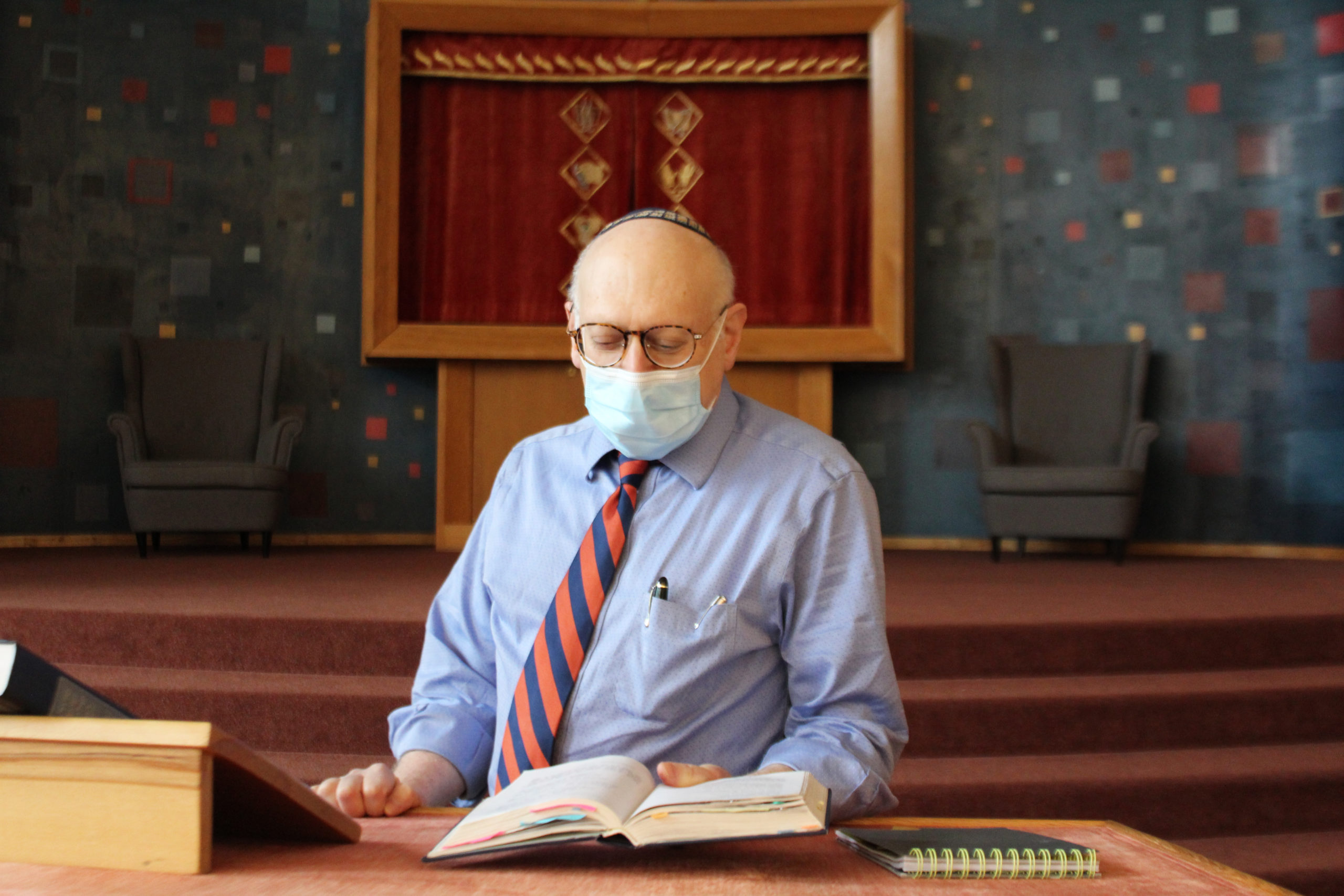
caption
Rabbi Gary Karlin, at the Shaar Shalom Synagogue in HalifaxHow religious groups in Nova Scotia are meeting the challenges of the ‘new normal’
The rock band warms up as masked worshippers trickle into the spaced-out seating at Halifax Christian Church. It’s Sunday morning and the lights overhead are twinkling as announcements flash across a huge screen at the front of the church. Downstairs, the control room is alive. Technicians work on multiple monitors to program the church’s YouTube channel while sound-checking and directing the camera operators upstairs, in the sanctuary, through headsets.
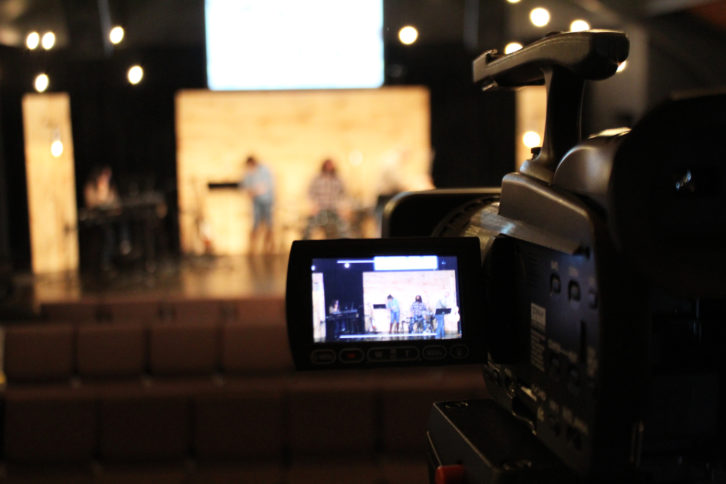
caption
A camera operator films the band at Halifax Christian Church.
This church has COVID-era worship down pat. Its online services are streamlined and polished, with multiple camera angles showing the pastors’ spoken messages in high definition to the families watching from home. There are kids’ activities on YouTube, a podcast, a website, Facebook live streams, and multiple online donation systems.
Over the past year, the church has slowly upgraded its technological capacity. It installed a video room and bought new cameras, software and equipment. Members of the congregation were trained to make everything run smoothly.
But the high production value of the weekly service doesn’t distract from the many empty seats inside the church.
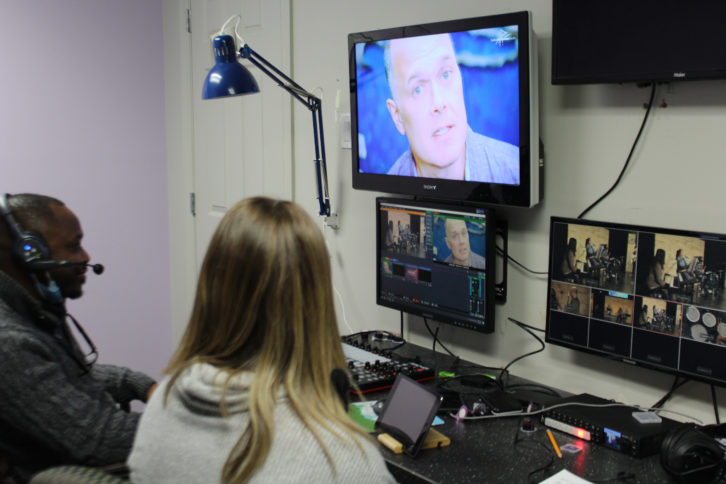
caption
The control room at Halifax Christian Church.
When the pandemic hit Nova Scotia last March, all places of worship were ordered to close, then quickly forced to adapt if they wanted to survive. Mosques, synagogues and temples in HRM moved online in order to stay connected with their congregations and maintain support. It became a case of go virtual or disappear.
Restrictions have fluctuated in the province since then, now permitting indoor faith gatherings of up to 100. Halifax’s religious institutions and their congregations are diverse, with each faith being unique and facing its own set of problems. In this past year of pandemic life, some lost money, some lost members, some had to rethink their most core traditions.
Many organizations have moved to a blended model of online and smaller in-person groups, and intend to keep this model going forward, COVID or not. But can the sense of community found within the physical walls of a place of worship be replicated online?
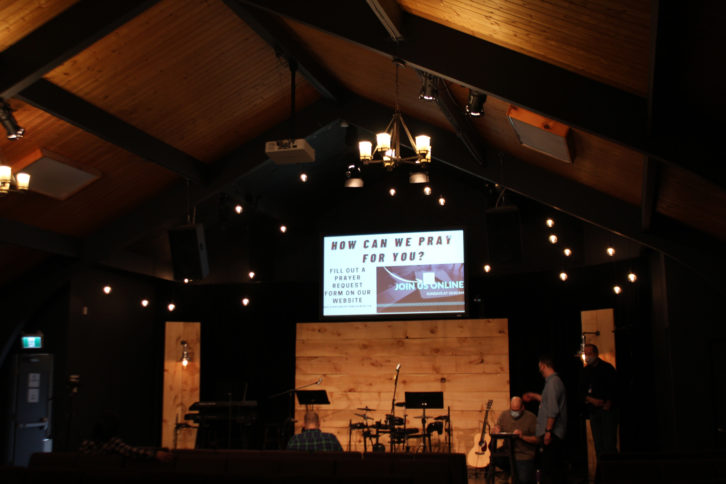
caption
A screen offers virtual prayers at Halifax Christian Church.
‘No going back’
Inside the Shaar Shalom Synagogue, a single camera sits discreetly at the back of the room. It is used to livestream Rabbi Gary Karlin’s sermons for the mainly older population that stays home to mitigate the COVID risk.
Karlin laments the absence of much of his congregation and says some may not return after the pandemic.
“I’m worried people will get out of the habit,” he says. “They’ll say ‘what do I need this for?’ … I think in some ways, there’ll be no going back.”
Karlin is coming to terms with the idea that things will not go back to the way they were. He knows online worship is here to stay, yet he says it pales in comparison to in-person gatherings.
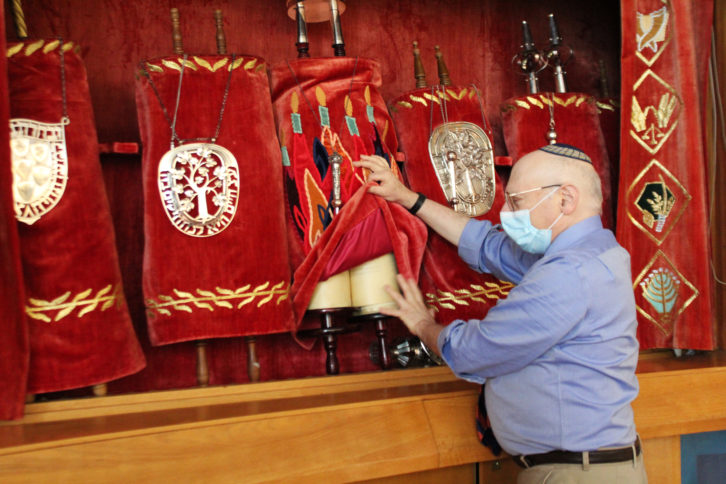
caption
Rabbi Karlin explains the history of Jewish traditions.
For one, he points out that people are not supposed to use technology or be on their phones on the Sabbath, Judaism’s day of rest. To get around this, members of the congregation can click the livestream link on Friday night and leave it open until the sermon starts on Saturday.
Karlin has noticed the strain on his congregation in the past year. He thinks the lack of coming together physically is a contributing factor.
“It’s testing their resolve and testing their energy,” he says. “I think people are somewhat depressed. And for some people, depression makes them come to the synagogue. But for a lot of people, it just makes them stay in bed.”
Judaism is a highly communal religion. Traditionally, public worship cannot occur without a quorum of ten. This represents the need to be with each other, the fact that Judaism is like a family. Karlin points out how even when people can come to the synagogue, masks and distancing impact the connection people share.
“We don’t shake hands anymore. We don’t sit close to each other anymore. We can’t see our mouths anymore.”
“We don’t shake hands anymore. We don’t sit close to each other anymore. We can’t see our mouths anymore.”Rabbi Gary Karlin
Gaby Milner, a second-year student at Dalhousie University, attends Shaar Shalom, but only on holidays. When she goes, she goes alone. Being from Toronto, she says she doesn’t feel a sense of connection to the local community, and believes it’s due to COVID measures.
“It’s very much not an individual thing,” she says. “It’s hard. We need community but we can’t get it.”
When she misses her family, she goes online and joins the programming with her synagogue in Toronto.
‘It’s not just the religion’
The Vedanta Ashram Society, the Hindu temple in Halifax, is also struggling with a loss of communal traditions. The temple has been closed for the past year, except for two months in the summer when COVID cases were consistently low. Vishal Bhardwaj, vice-chair of the organization, says he sees how the closure is taking its toll on its members.
“They keep asking every day, ‘is it open, when will it open?’ Because it’s not just the religion that happens in the temple,” Bhardwaj says. “There is a lot of personal and cultural milestones and rituals in Hinduism.”
The ashram is a gathering place for people to get a taste of home through food, local traditions and speaking their native tongue. The online programming the Ashram puts on every day cannot replace this connection.
“India is a big place with (28) different states, and each has a different language, so this was the time where they’d come in and see people from their own community and speak their own language,” he says.
Like Judaism, a significant part of Hindu worship is sharing food together. Bhardwaj says many international students attend the Ashram, and other members have been stepping up and bringing traditional food to students who may be homesick for their families.
Prolonged closures
The local Sikh population has also been disconnected over the past year. A new temple, called a gurdwara, was under construction when COVID hit. Since then, projected costs have almost doubled due to the pandemic, says Manvinder Kaur Dhillon, treasurer of the Maritime Sikh Society.
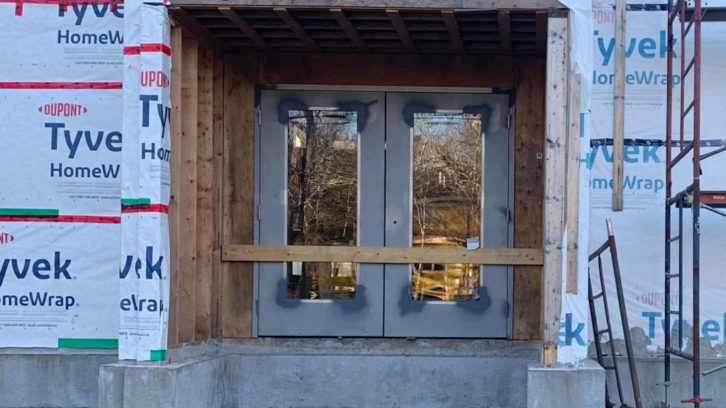
caption
The Maritime Sikh Society gurdwara is still under construction.
A member has since offered his home for worship, but under public health regulations for households, no more than 10 people can meet daily for morning and evening prayer.
Other than this home, the Sikh community has had nowhere to meet in person and no online worship system for the past year. Kaur Dhillon says the group does not have the technological capacity to conduct online programming, and the lack of a physical space is felt deeply by the community.
She says the Sikh community in Halifax has nearly doubled in the past four years, and the gurdwara was a welcoming space for newcomers.
“Our place was providing them free food, a place to meet others and talk about job applications, information about how to get settled, sometimes families could even live there for a bit if they had nowhere to go.”
Kaur Dhillon says looking to the future, the only option is to have the construction of the gurdwara completed and to meet in person again. But fundraising has been a challenge with no in-person events or gatherings.
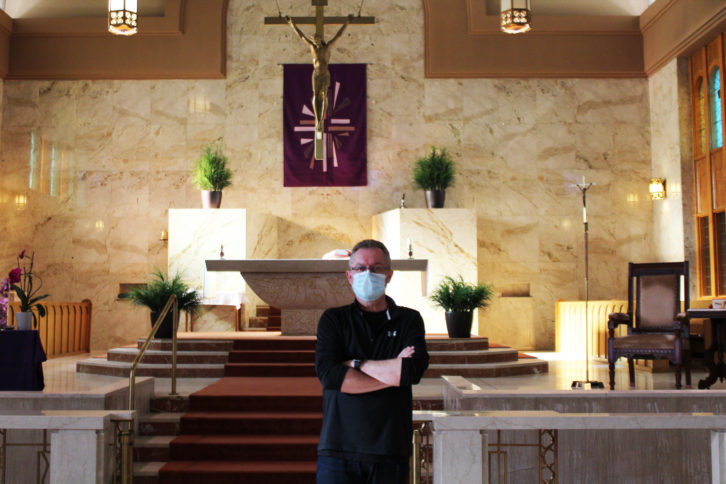
caption
Father Irek Bem stands in the sanctuary of Saint Agnes Roman Catholic Church in Halifax.
Father Irek Bem of the Good Shepherd Catholic Parish in Halifax says his parish used to have around 1,100 people attending church services each weekend. Now, it can only have four services with 100 people each.
The church now offers many services and donation options online, including a type of Catholic Netflix service, called “Formed,” for parishioners to access Catholic content on demand.
Bem says though it’s difficult, he knows why the restrictions must be followed.
“I strongly support the authorities because I know they don’t have any hidden agenda,” he says. “I’m very concerned about some religious organizations starting to blame the government for trying to crush their religious freedoms. All that nonsense about, you know, some conspiracy, I just don’t buy it.”
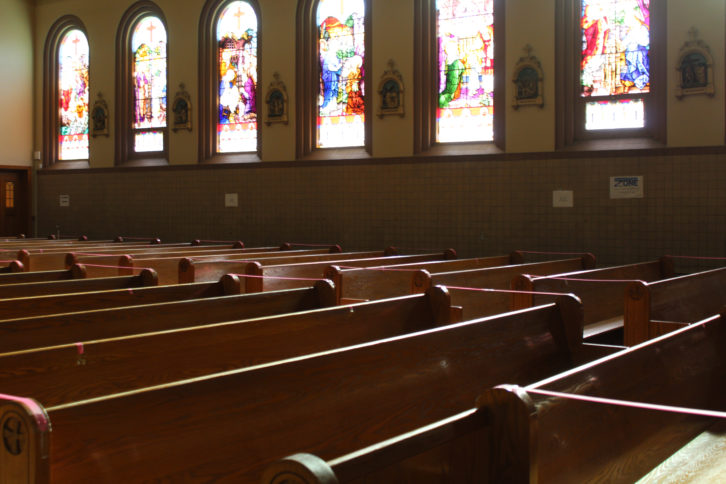
caption
Many pews are blocked off to ensure social distancing.
Violators beware
In HRM, there has been one ticket issued to an unnamed religious organization for breaking gathering limits. Halifax Regional Police have only disclosed that a “faith-based gathering” in Bedford was fined $7,500 in January for not following regulations.
Asked for more details, the public information officer for Halifax Regional Police, Const. John MacLeod, said the group will not be named because the intention is not to shame them, but “to remind the public that violators will be held accountable.”
Violations, while rare in Nova Scotia, have been more common in other provinces. In Edmonton, a pastor was charged twice and finally placed in custody in mid-February for breaking public health rules tied to the pandemic. The pastor, James Coates, voiced concerns to his congregation that the rules were infringing on the church’s Charter rights, specifically freedom of religion.
In Ontario, a church in Waterloo was ordered to pay $38,000 in fines and $45,000 in legal costs for breaking the province’s gathering rules and ignoring a court injunction ordering it to stop holding large services.
And in February, British Columbia’s top doctor began seeking an injunction against three churches for continuously breaking public health guidelines. If the court order is granted, police will be able to detain anyone who attends a service.
Rabbi Karlin from Shaar Shalom speculates that violations have been low in Nova Scotia due to monthly meetings between the province’s chief medical officer of health, Dr. Robert Strang, and religious leaders. Karlin says this makes leaders feel heard and gives them a chance to voice their concerns.
Pastor James Stevenson of Halifax Christian Church says members of his congregation can turn to their faith to understand why they must stay home.
“I think as Christians one of the things we’re called to do is love our neighbour. And I think one of the best ways that we can love our neighbour is to comply with these health protocols and to do our part,” he says. “I think we’re living in a time where we can have church and worship easily online. So that’s not a big issue for me.”
“I think one of the best ways that we can love our neighbour is to comply with these health protocols and to do our part.”Pastor James Stevenson
Indy Calina, a member of Halifax Christian Church for four years, has gone to church in person with his family only once in the past year. He says online services have been a great way for him to stay connected to his faith and for his kids to keep up their religious education.
Going to church in person is simply too much of a risk, he says, and he thinks many others agree.
“Safety is still a priority and a main concern, and I know people are always on the lookout in the news of what happens every day and how many COVID cases are announced every day,” he says. “It is good for people to be aware of what’s happening so they can actually prepare themselves.”
The (social) science behind it
Dr. Christopher Helland, an associate professor at Dalhousie University who studies the internet and the sociology of religion, says religious information has been going virtual for the past 25 years. But religious rituals moving online is a new phenomenon.
The authenticity of the ritual – if it feels real or not, if needs are met – is based on the individual, he says.
“Whether it’s just your body in the space, or it’s the taste of the wine, or the smell of the incense, there’s things that will be lost. And then it comes to the participant to then say, ‘how do I feel about that?’”
He points to the benefits of religion going online – reaching more people, erasing borders. It can also lead to more exploration. People who feel spiritual but don’t identify with a specific religion can experience more than they would if they had to attend a new service in person.
It can also help members of a diaspora keep in touch with one another and maintain their connection to community, their religion and their identity when there is no other option, creating what’s known as a “network religion.”
For these reasons, Helland believes a blended or hybrid model will continue to be successful with religious organizations in a post-COVID world.
Unexpected benefits
Religious organizations with robust online presences have had the most success in the past year. Some have even used these innovations to broaden their reach and have a greater impact.
Umma Masjid Mosque used to see up to 1,000 worshippers come to its prayer hall each Friday, then gather to share a meal. This tradition of eating together was halted by COVID, but the imam, Abdallah Yasri, says the mosque actually increased its capacity thanks to a new drive-through meal service and outdoor food bank.
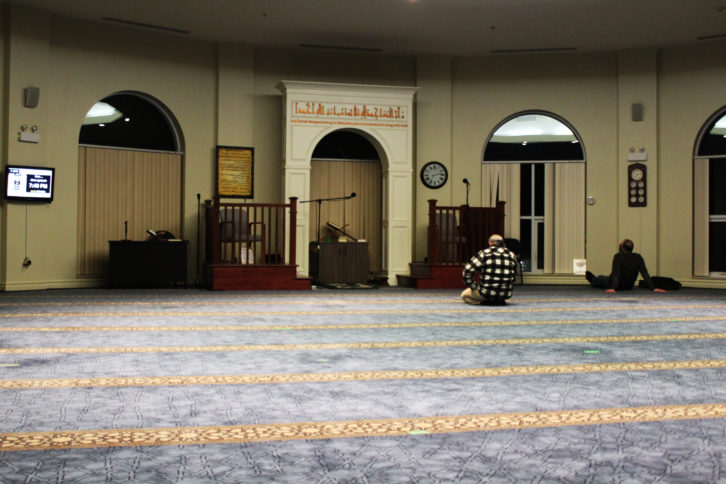
caption
Green tape marks how far people must separate in the prayer hall at Umma Masjid Mosque.
Using its commercial kitchen, the mosque has been able to give away around 5,000 meals during the pandemic. It also donated meals to front-line healthcare workers and to Northwood long-term care home.
Although he sees many people struggling financially, emotionally, and spiritually due to COVID-19, Yasri thinks continuing to have some programming online will benefit his congregation in the future.
“Some people really enjoy it and they really feel like it does provide them what they are looking for,” he says. “It’s more convenient for them, especially when you talk about seniors, or little kids coming back and forth to the mosque, especially in the winter.”
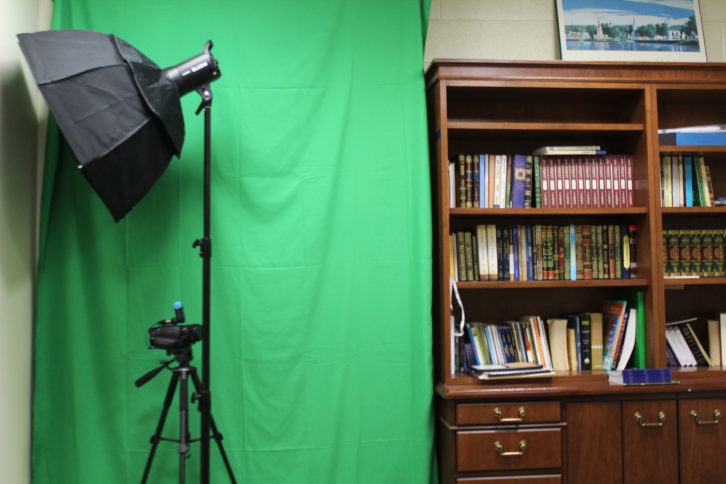
caption
Imam Abdallah Yasri has added a green screen to his office.
While some religious organizations, such as Umma Masjid, are more suited to technological advancements since they were already on this path before the pandemic, religious groups in Halifax hope to gather as a community in the future, without masks or social distancing.
Vishal Bhardwaj from the Vedanta Ashram Society sees a bright future ahead if communities continue to work together.
“Check on your seniors, check on your friends,” he says. “Reach out to them, don’t wait for the call. Let’s help each other get through this difficult time. There is light at the end of the tunnel, hopefully it is not too far.”
About the author

Nicola Seguin
Nicola is from New Brunswick, currently living on unceded Mi'kmaw territory in K'jipuktuk (Halifax). She has a political science degree from...
